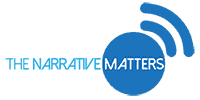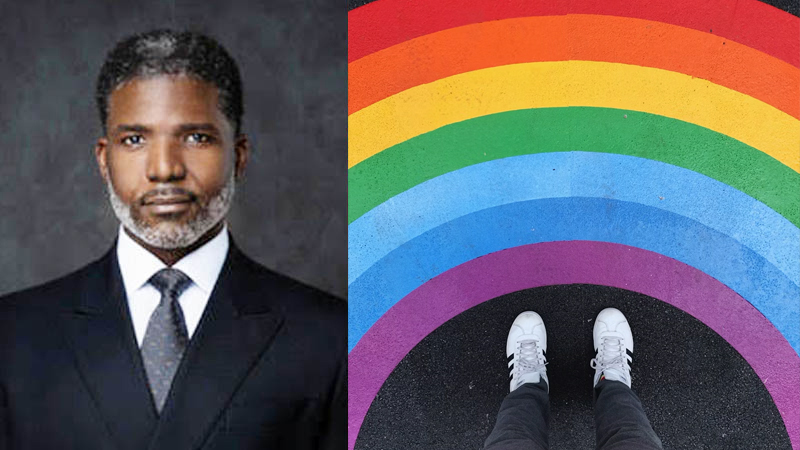
Every June, streets from San Francisco to St. Louis are awash in color, sound, and movement as Pride Month celebrations unfold. For some, this is a display of visibility and resilience. For others, it may feel distant or difficult to relate to. But look closer, and you’ll see that Pride is about something all of us value: the right to live freely, safely, and authentically in the place we call home.
Pride Month began as a protest, not a parade. The first Pride marches were acts of resistance by everyday people (e.g., teachers, barbers, veterans, students) demanding recognition, protection, and the simple dignity to exist without fear. In that way, it mirrors so many other justice movements across American history. Whether it was Black Americans marching in Selma, immigrants rallying for labor protections, or women standing for equal pay, the pursuit of freedom and fairness connects us all.
This year, celebrations in cities like New York and San Francisco were paired with a renewed sense of urgency. Organizers of New York City’s Pride events reported a $750,000 loss in corporate sponsorship, while San Francisco’s organizers faced a $180,000 funding gap (San Francisco Chronicle, 2025; New York Post, 2025). The reasons behind this retreat are telling. Companies and institutions are backing away amid rising political polarization over LGBTQ+ rights, particularly transgender inclusion and the display of Pride symbols.
This withdrawal is about more than money. It reflects a shift in the national climate—where LGBTQ+ people, especially youth, are once again being politicized. Flags are being banned, books are being challenged, and healthcare protections are being rolled back. These aren’t abstract issues. They’re lived realities that shape mental health, job security, family stability, and physical safety.
The LGBTQ+ community’s story is one of courage and perseverance, but it also mirrors the hopes and fears of many Americans. At a time when social divisions seem wider than ever, Pride offers us a reminder: the values that underpin its celebration (freedom, dignity, and inclusion) are universal.
When a transgender teen can safely attend school without fear of harassment, it strengthens protections for every student. When two men can walk hand-in-hand without being assaulted, it signals to all Americans that hate has no place here. When healthcare systems are inclusive and responsive, everyone (regardless of gender, race, or identity) benefits from more compassionate, effective care.
In short, protecting one group’s freedom reinforces the rights of all.
Globally, Pride continues to be a barometer of human rights. This year, more than a dozen countries, including Canada, Brazil, and several European nations, issued a joint statement affirming LGBTQ+ rights. The United States, however, was notably absent (Reuters, 2025). This silence raises questions not just about foreign policy, but about our moral leadership in a world increasingly hungry for justice.
The future of Pride, like the future of democracy, depends on all of us. Allyship isn’t reserved for the month of June, and it doesn’t require waving a flag. It can be as simple as listening, voting, or supporting policies that make our communities more inclusive and humane.
This year, many Pride celebrations adopted themes like “Queer Joy is Resistance” and “We Keep Us Safe.” But those sentiments apply to any group facing hardship. In a nation still healing from pandemic trauma, racial injustice, and economic inequality, Pride invites us to imagine a world where difference isn’t feared but valued.
If we’re brave enough to accept that invitation, perhaps we’ll see that the fight for LGBTQ+ rights is not separate from the American story, it is the American story.
References
Reuters. (2025, June 29). Canada, Europeans and Brazil, not US, issue statement backing LGBT rights.
San Francisco Chronicle. (2025). ‘Rights are under attack’: S.F. Pride parade as zany as ever, but infused with resistance.
New York Post. (2025). NYC Pride loses $750K in funding amid backlash.
Dr. Frederick Echols, MD, is available as a subject matter expert on public health for press interviews and speaking engagements.
###
About Dr. Fredrick Echols, MD
Dr. Fredrick L. Echols, MD is the founder and Chief Executive Officer of Population Health and Social Justice Consulting, LLC, an Obama Foundation Global Leader, sought-after public speaker, black men’s health advocate, and accomplished physician with over 15 years of experience in public health. He has worked extensively with public and private sectors to address complex health issues through evidence-informed approaches. Dr. Echols is a graduate of the Centers for Disease Control and Prevention Population Health Training in Place program and the ASTHO-Morehouse School of Medicine’s Diverse Executives Leading in Public Health program.
Passionate about health and justice, Dr . Echols’ notable roles include serving as Chief Executive Officer for Cure Violence Global, Health Commissioner for the City of St. Louis, and Director of Communicable Disease and Emergency Preparedness for the St. Louis County Department of Public Health. In these roles, he oversaw public health regulations, led COVID-19 response efforts, managed daily operations, and developed strategic partnerships. Dr. Echols also served as Chief of Communicable Diseases for the Illinois Department of Public Health and as a physician in the U.S. Navy. He continues to contribute to public health research and guides health organizations globally.
For more health tips follow Dr. Fredrick Echols @ Fredrick.Echols@gmail.com
Follow Dr. Echols on socials:
LinkedIn: @FredrickEcholsMD ( www.linkedin.com/in/fredrick-echols-m-d-5a2063225)
Facebook: @FredrickEchols
Instagram: @F.EcholsMD
#PrideMonth #EqualityForAll #SharedDreams

